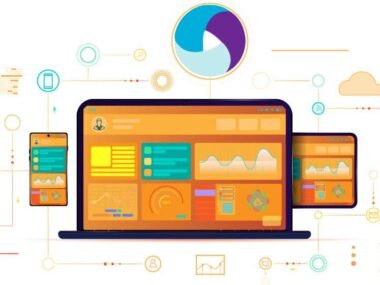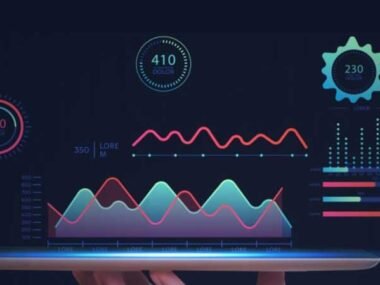Introduction: Browsers Beyond Basic Navigation
The digital realm is in constant flux, reshaping the tools we rely on each day. At the forefront of this evolution are web browsers. These platforms have grown far beyond their original role of basic internet navigation to profoundly influence productivity, security, and the way we explore online content. Emblematic of these innovations is the Shift.com browser, highlighting the trend toward tools that support a comprehensive browsing experience crafted to meet users’ multidimensional needs.
The Rise of Feature-Rich Browsers
Feature-rich browsers are characterized by their array of tools that extend beyond conventional web surfing. They now include built-in screen captures, reading modes to reduce distractions, and sophisticated tab management to handle large volumes of information more effectively. These functionalities represent an ongoing commitment to leverage technology for improved user engagement and convenience. As noted by The Verge, feature updates are frequent and indicative of a persistent endeavor to elevate user experience, resonating with tech enthusiasts and everyday users alike.
Privacy and Security Innovations
Digital privacy has become a top priority for browser developers and users. Modern browsers have responded by embedding robust security features that safeguard user data against cyber threats. This includes innovations like sandboxing technology that isolates web pages to prevent malware from infiltrating devices and automatic tracker blockers that halt third-party data collection. These advancements signify a wider movement towards empowering users to control their online presence, reflecting the industry’s emphasis on trust and transparency as foundational elements for a secure browsing experience.
Speed and Efficiency: The Modern Browser Edge
The importance of browser speed can hardly be overstated in today’s fast-paced digital environment. Cutting-edge browser technologies harness advanced coding techniques to enhance load speeds and minimize latency, ensuring that users do not face interruptions that could hinder productivity or enjoyment. Furthermore, efficient resource management ensures that performance remains consistent even when handling multiple tasks or content-heavy webpages, thus meeting the demands of today’s multitasking users who require stability and speed in their browsing activities.
Syncing Across Devices: A Unified Experience
Cross-device syncing has redefined how users manage their digital lives by breaking down barriers between different interfaces. By leveraging cloud technologies, browsers offer seamless transitions between devices, allowing for continuity in browsing history, passwords, and settings, no matter the device in use. This feature heralds a future of interconnected digital ecosystems where personalized user experiences are maintained across all touchpoints, offering unparalleled convenience and flexibility to those navigating the complexities of modern digital life.
The Role of Extensions and Add-ons
Extensions and add-ons bring flexibility and personalization to browsing, allowing users to tailor their browsers to specific functions or preferences. Whether seeking enhanced privacy with ad blockers, efficiency tools like task managers, or content curation services, users can extend browser capabilities far beyond their default settings. TechSpot highlights how these extensions satisfy diverse user needs and drive innovation within the browser ecosystem, continuously enhancing and redefining the boundaries of browsers.
Choosing the Right Browser for Your Needs
Determining the best browser is highly individual, contingent on various factors such as security priorities, desired features, and personal workflow requirements. Whether a user values speed, customization, or privacy—or a combination thereof—understanding these preferences is vital for selecting a browser that complements one’s digital habits and enhances daily productivity and security, thus fostering a tailored browsing experience that aligns with personal or professional goals.
Future Trends in Browser Technology
The horizon of browser technology is rich with potential, driven by advancements such as artificial intelligence integrations that promise to personalize user experiences further. Additionally, augmented reality support is poised to bring a new layer of interactivity to web browsing, transforming it from a passive activity into an immersive, engaging digital venture. As these technologies advance, the role of the browser as a digital gateway will only intensify, offering new paradigms for how users engage with content and the online world.










